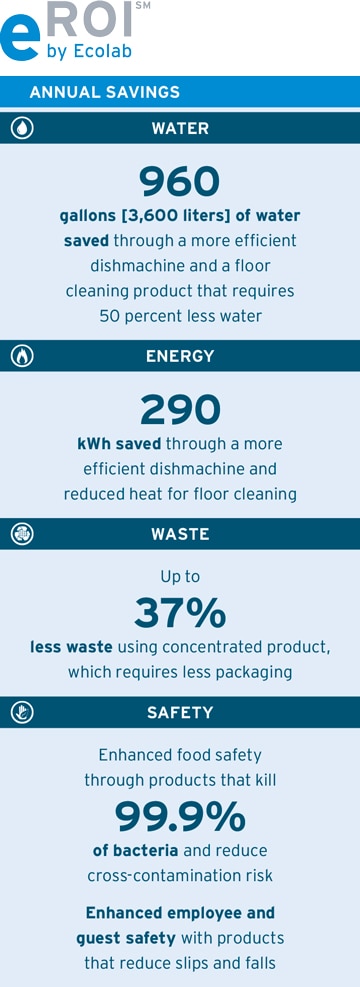Local Eatery Becomes Ecolab Test Kitchen
INSIGHT
The restaurant sector is changing because of consumers’ evolving preferences— especially on the part of millennials. Independent restaurants and regional chains are gaining in popularity, with almost 250,000 independent restaurants in the U.S. alone. While the large chains have dedicated supply chain, sustainability and food safety teams, the independent restaurateurs often have to work things out for themselves. Ecolab can help.The Buttered Tin is a popular eatery in St. Paul, Minnesota. The owner is Alicia Hinze, a graduate of the famous Le Cordon Bleu cooking school and former winner of the Food Network's "Cupcake Wars" baking competition. With expansion plans in the works, she is looking to Ecolab for support.
“I’m an Ecolab fan because we’ve become such great partners,” she said.
INNOVATION
When Hinze opened The Buttered Tin in 2013, one of the first things she needed was an under-the-counter dishmachine that fit in her limited space. She turned to Ecolab, the world’s largest supplier of leased commercial dishmachines.In 2015, Hinze joined Ecolab’s dishmachine testing programme. The lessons learned at The Buttered Tin help restaurants elsewhere work more efficiently and sustainably. “The main reason for the testing is learning how to conserve water, energy and products,” she said. “How much do you use, what’s the optimal temperature? We’re learning all the time.”
For a small restaurant, optimizing chemistries and equipment also is a cost-saver. At The Buttered Tin, cleaning products, detergents and sanitizers are a significant weekly expense, so Ecolab’s highly efficient products not only save water and energy, but also money.
At the future locations Hinze is prospecting, she strives to be even more sustainable, and Ecolab will be there from day one. “It starts with the floor plan,” she said. “Where do we put the Ecolab dishwasher and the products? Or even just the floor itself: Ecolab tells us which products to use and how to clean it. It’s really important to get that right, because you can save products, time, energy and water.”



